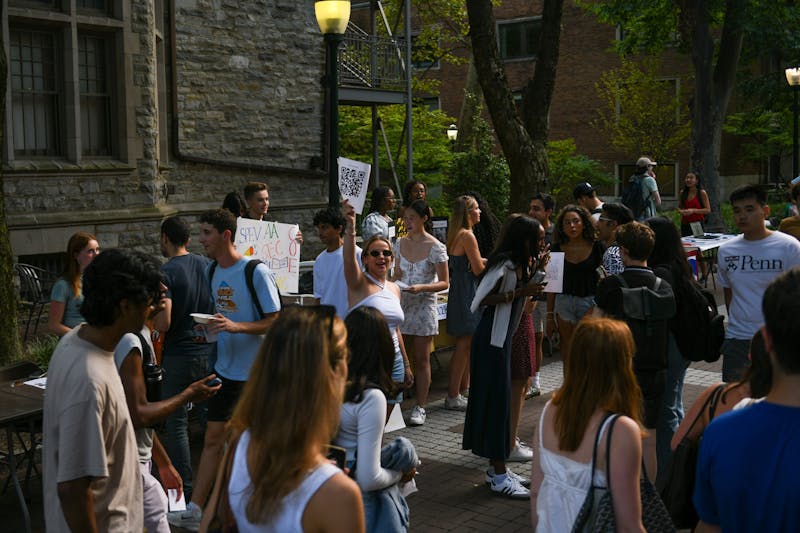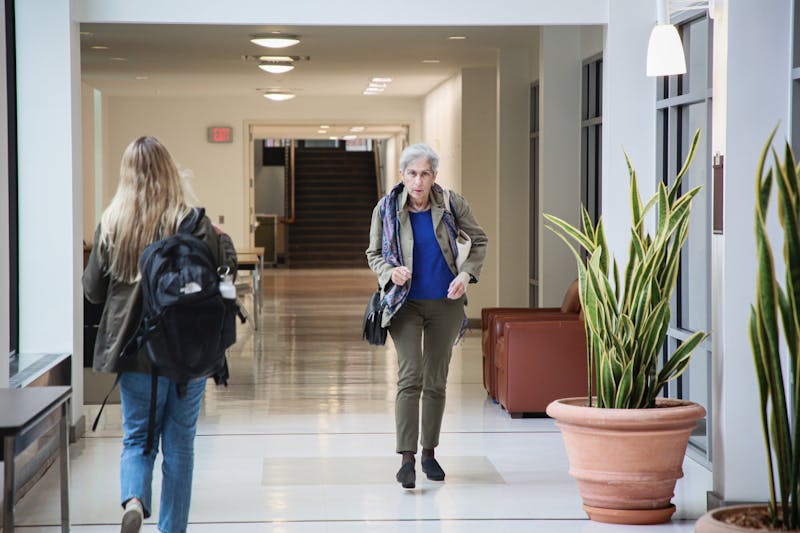The science of sleep suggests that sheep are best left to the barnyard.
Three panelists spoke last night in a seminar entitled "Sleep 101," a forum that addressed the mechanics of sleep and the impact its loss can have on the mind and body.
The lecture, held at the Annenberg School for Communications and sponsored by both the Trustees' Council of Penn Women and the Penn Women's Center, featured speakers from Penn's faculty who covered a wide variety of topics pertaining to sleep and its implications on health.
Professor of Psychology in Psychiatry David Dinges presented a lecture concerning the origins of sleep and its biological necessities.
According to Dinges, the circadian rhythm that governs human behavior finds its root in earth's rotation around the sun. The brain recognizes this change, and releases chemicals that affect alertness.
Speaking as to the necessity of sleep, its deprivation results in an unstable cognitive state that can dramatically affect our "psychomotor vigilance," said Dinges.
Terri Weaver, professor of Nursing, followed Dinges with a discussion on sleep disorders and their effects on daily human functions.
Weaver stated that there are five stages of sleep, all of which have associated mental and physical processes. In addition, she raised the issue of "sleep hygiene," a process that permits one to fall asleep consistently through management of environment and behavior.
For students who still have trouble falling asleep, Nursing professor Norma Cuellar provided information related to complementary and alternative medicine resources.
Biologically based therapies - including herbal, natural, nutritional and hormonal therapies - were mentioned, along with mind and body interventions, such as yoga and hypnosis.
The panel opened to questions after the discussion, and many of the approximately 60 attendees used the opportunity to address issues pertaining to their own inability to get a proper night of sleep.
When asked to comment on the viability of labels pertaining to one's status as a "morning" or "night" person, the panel responded that this trait was largely hereditary in scope.
Joya Jones, a College junior who admittedly doesn't sleep well, said she found the event helpful and Dinges' idea that she could control her sleeping habits could be especially useful in conquering her own somnial difficulties.
Dinges, when queried as to his personal sleeping habits, said he sleeps just "fine."
The Daily Pennsylvanian is an independent, student-run newspaper. Please consider making a donation to support the coverage that shapes the University. Your generosity ensures a future of strong journalism at Penn.
DonatePlease note All comments are eligible for publication in The Daily Pennsylvanian.







